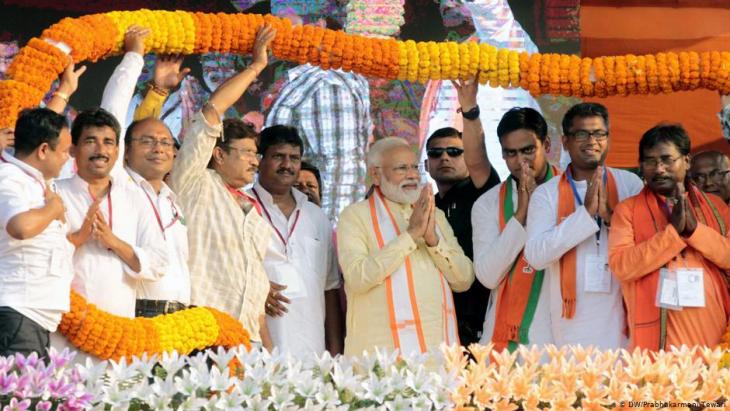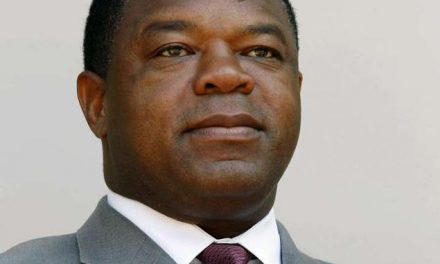7 May 2016
General elections are going on in India and we do not know yet who will win the election. But it appears that BJP has an unfair advantage over the main opposition Congress party.
Opaque campaign financing makes it difficult to get a full picture of money in politics there. But both BJP and Congress supporters say that BJP’s war chest is at least 10 times bigger than that of Congress. The BJP war chest has allowed it to unleash a massive amount of advertising on Cable TV, Facebook and Google advertisements, spending six times more than Congress since February. It is difficult to track digital spends and they do not have to go through the hassle of having to take prior permission, which slows down the campaign.
More than 300m Indians are now on WhatsApp, making the country by far its biggest market. A vast army of volunteers (reportedly 90,000) are conducting digital political campaigns with a personal touch using WhatsApp. It is also true that falsehood and misinformation dominates messages sent through this digital media. There is good reason to believe that this widespread popularity of WhatsApp in India could have a damaging effect on the election.
BJP has an advantage even over logistical issues like getting its leaders to election rallies crisscrossing India to campaign. A Congress official said the BJP had the funds to reserve most of India’s fleet of helicopters for hire for 90 days, making it difficult for opponents to get hold of them.
Money has become important in elections given the country’s 1.3 billion population, its voting spread over 39 days and the sheer complexity of the electorate, in terms of region, religion, language and caste.
The New Delhi-based Centre for Media Studies estimates almost $8.6 billion will be spent on this year’s vote, roughly twice the 2014 election. This is more than the estimated US 2016 election expenditure of $6.5 million.
There is a legal cap of $100,000 on parliamentary candidates’ expenditure. But the limit is widely flouted and political parties are spending freely.
Recent reforms under Modi allowed corporations to anonymously fund the election campaign through the new “electoral bonds”. This enables the parties to circumvent the legal donations cap.
Top leaders like Narendra Modi and Rahul Gandhi address mammoth rallies across India, but not from street corners as in the past. Japan Times reported.
General elections are going on in India and we do not know yet who will win the election. But it appears that BJP has an unfair advantage over the main opposition Congress party.
Opaque campaign financing makes it difficult to get a full picture of money in politics there. But both BJP and Congress supporters say that BJP’s war chest is at least 10 times bigger than that of Congress. The BJP war chest has allowed it to unleash a massive amount of advertising on Cable TV, Facebook and Google advertisements, spending six times more than Congress since February. It is difficult to track digital spends and they do not have to go through the hassle of having to take prior permission, which slows down the campaign.
More than 300m Indians are now on WhatsApp, making the country by far its biggest market. A vast army of volunteers (reportedly 90,000) are conducting digital political campaigns with a personal touch using WhatsApp. It is also true that falsehood and misinformation dominates messages sent through this digital media. There is good reason to believe that this widespread popularity of WhatsApp in India could have a damaging effect on the election.
BJP has an advantage even over logistical issues like getting its leaders to election rallies crisscrossing India to campaign. A Congress official said the BJP had the funds to reserve most of India’s fleet of helicopters for hire for 90 days, making it difficult for opponents to get hold of them.
Money has become important in elections given the country’s 1.3 billion population, its voting spread over 39 days and the sheer complexity of the electorate, in terms of region, religion, language and caste.
The New Delhi-based Centre for Media Studies estimates almost $8.6 billion will be spent on this year’s vote, roughly twice the 2014 election. This is more than the estimated US 2016 election expenditure of $6.5 million.
There is a legal cap of $100,000 on parliamentary candidates’ expenditure. But the limit is widely flouted and political parties are spending freely.
Recent reforms under Modi allowed corporations to anonymously fund the election campaign through the new “electoral bonds”. This enables the parties to circumvent the legal donations cap.
Top leaders like Narendra Modi and Rahul Gandhi address mammoth rallies across India, but not from street corners as in the past. Japan Times reported.














